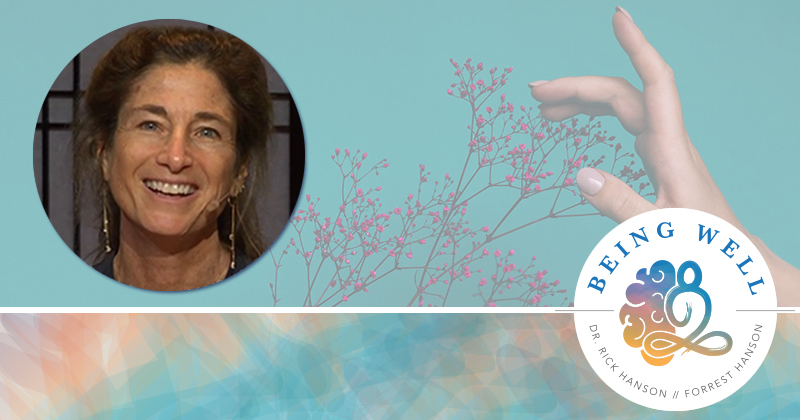07 Jan Being Well Podcast: Caring for Yourself

We’re starting off our new year with a very special episode dedicated to Self-Caring. This episode features a wonderful conversation between Dr. Rick Hanson and an internationally recognized clinical psychologist, author, and meditation teacher: Dr. Tara Brach.
“Most of us received a message in some way that to be loved we had to be different than we were. So out of care for ourselves we tried to make ourselves different. It’s a strategy, but it’s a strategy that tends to bring a lot of suffering.” – Tara Brach
Every New Year it’s common to go through a process of making resolutions, setting big goals, and generally trying to be all we can be. These aspirations can be great sources of guidance over the year to come.
But they’re not without their own pitfalls. It’s easy for new aspirations and goals to come wrapped in a package of self-recrimination and criticism. It’s natural for thoughts like:
- “Why has this taken me so long?”
- or “Why does it matter, I’m just gonna give up anyway??”
- or “Wait, wasn’t this my resolution last year???”
…to roll through our heads.
That’s why we’re starting off our new year with a very special episode dedicated to Self-Caring. This episode features a wonderful conversation between Dr. Rick Hanson and an internationally recognized clinical psychologist, author, and meditation teacher: Dr. Tara Brach.
Tara’s teaching blends Western psychology with Eastern spiritual practice, brings mindful attention to our inner life, and pulls us into a full, compassionate engagement with the world.
During the interview Rick and Tara explore the importance of self-caring, how we can grow this critical resource inside ourselves, and why it’s not selfish to be on your own side.
Timestamps:
3:00: The “sweet spot” of personal growth.
6:45: Why should we open to painful experiences?
10:15: A personal story of self-caring.
14:00: The “near enemies” of self-caring.
16:40: How can we feel the difference between authentic self-caring and imposter emotions?
19:00: Self-caring and wholeness of the self.
21:35: Self-caring without narcissism.
25:55: Facing our needs.
29:30: A practice of self-compassion.
38:35: Seeing through the eyes of another.






